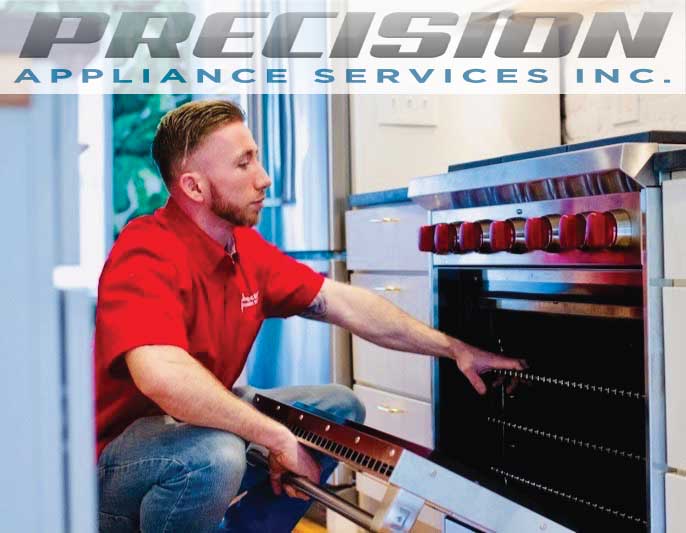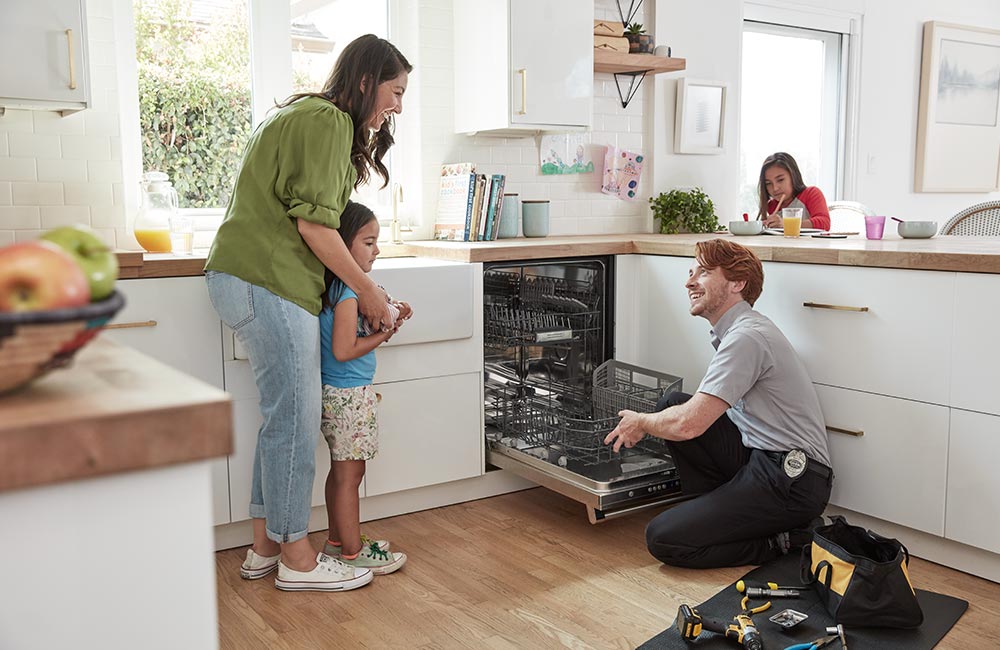The Ultimate Guide to Understanding Home Appliance Repair in the house
When your fridge quits cooling down or your oven refuses to warm, it can really feel frustrating. Comprehending appliance repair service at home can save you time and money. You'll learn to identify signs and symptoms, utilize important tools, and adhere to an organized troubleshooting procedure. Prior to you begin, there are important security preventative measures you require to take into account. What are the most typical issues, and exactly how can you fix them? Let's explore the essentials.
Typical Appliance Troubles and Their Signs and symptoms
When your devices start acting up, it's vital to acknowledge the indications beforehand. Disregarding them can bring about bigger concerns and costly fixings. As an example, if your refrigerator isn't cooling properly, you could notice cozy places or condensation forming. This can suggest a stopping working compressor or a blocked vent.Your dishwasher might show troubles through dirty meals or uncommon noises throughout cycles. If you hear grinding or clanking, it's time to investigate.A washing equipment that will not spin or drain pipes can leave you with soaked laundry, suggesting a stopped up drainpipe or a malfunctioning pump.Lastly, if your oven's temperature level appears off or it takes for life to preheat, you may be taking care of a malfunctioning thermostat. By remaining sharp to these signs, you can deal with problems before they escalate right into major repair services.
Essential Tools for Device Repair Service
When you're taking on device repair work in your home, having the right tools is necessary. Basic hand devices like screwdrivers and pliers will certainly assist you take apart and deal with various home appliances, while electrical screening gadgets ensure you're working safely with electrical wiring. Allow's discuss what you need to start on your repair work journey.
Fundamental Hand Tools
Having the right devices is important for efficient appliance repair in the house. Begin with a trusted screwdriver collection, including both flathead and Phillips types, as screws prevail in device assembly. Pliers are also vital; they aid with gripping, twisting, and reducing cables or small parts. A pair of needle-nose pliers can get to difficult situations easily. You'll need a great flexible wrench for tightening or loosening nuts and bolts. An energy blade is handy for cutting via product packaging or insulation. Lastly, do not neglect a sturdy workbench or surface to securely organize your devices and parts. With these fundamental hand tools, you'll be well-prepared to deal with most appliance repairs that come your means.
Electric Testing Instruments
Along with fundamental hand devices, electrical screening gadgets play a crucial function in device repair. These devices assist you detect electric issues and assurance devices function safely. A multimeter is crucial; it gauges voltage, current, and resistance, allowing you to identify troubles quickly. A non-contact voltage tester is another essential, letting you spot online cords without making direct get in touch with, improving your safety. Clamp meters are terrific for measuring present circulation in wires without disconnecting them, conserving you effort and time. In addition, circuit testers can promptly check if electrical outlets are operating correctly. By utilizing these gadgets, you'll enhance your troubleshooting process and improve your repair work skills, making appliance upkeep a great deal much easier.
Step-by-Step Overview to Diagnosing Device Issues
When your device breaks down, it can be discouraging, however detecting the concern does not need to be overwhelming. You'll find out to determine usual troubles and use reliable repairing strategies. Allow's go through the actions to get your home appliance back in working order.
Usual Appliance Problems

Repairing Strategies Clarified

Fixing Major Cooking Area Home Appliances: A Closer Look
Have you ever before wondered how to deal with common issues with your kitchen home appliances? Fixing significant kitchen area home appliances like fridges, ovens, and dishwashing machines can be much easier than you believe. Beginning by recognizing the trouble-- whether it's a refrigerator not cooling down or a stove that won't warm. Commonly, a straightforward reset or examining the source of power can address the issue.For refrigerators, tidy the condenser coils and inspect the door seals. If your stove's not heating, check the heating aspect and thermostat. Dishwashers may simply need a clean filter or a reset to obtain them back in action. Always disconnect the device before diving right into fixings to assure your safety.Don' t forget to speak with the customer handbook for certain troubleshooting suggestions connected to your version. With a little bit of patience and the right devices, you can confidently deal with device fixings and save money while doing so!

Repairing Washing Appliances: Tips and Techniques
When your washing devices begin acting up, it can feel frustrating, yet repairing them does not have to be a trouble. Begin by examining the power supply. Confirm the appliance is connected in and the electrical outlet is functioning. Next, examine the door or lid button; a defective button can stop the device from operating.For washing machines, if it's not rotating, look for out of balance tons. Redistributing the clothing could solve the issue. If your check here clothes dryer isn't heating, clean the lint filter and inspect the air vent for blockages.Listen for unusual sounds; they can suggest a problem. If your home appliance is leaking, examine the pipes for cracks or loosened links. Record any mistake codes displayed on digital displays, as they can lead you in determining the problem. Ultimately, consult the customer guidebook for certain fixing pointers connected to your design.
Safety And Security Preventative Measures to Take During Repair works
Prior to you start any home appliance repair work, it's vital to prioritize safety to stop mishaps or injuries. Initially, disconnect the home appliance or turn off the breaker to assure no power reaches it while you work. Usage protected devices to decrease the risk of electric shock. Wear safety and security goggles and handwear covers to safeguard yourself from sharp sides or debris (Lg Dryer repair near me Dependable Refrigeration & Appliance Repair Service).Make specific your work area is neat and well-lit, so you can see what you're doing. Maintain kids and pets away from the location to avoid distractions and potential threats. If you're taking care of gas appliances, be added cautious; look for leakages before proceeding.Take your time, and don't rush through repairs. If you feel uncertain about any step, it's better to pause and study than to presume. Adhering to these safety measures will certainly aid develop a safer setting for your do it yourself appliance repair task
When to Call a Professional for Aid
How do you know if it's time to call in a professional for home appliance repair work? If you've tried fundamental troubleshooting without success, it's a clear sign. If your home appliance still will not begin or reveals uncommon noises after resetting it, don't wait to seek expert help.When you see leakages, smoke, or melting scents, focus on safety and security and call a pro instantly. These problems can cause more substantial damage or posture dangers to your home.Also, if your appliance is under service warranty, speaking to a specialist is commonly the finest route. They can guarantee that fixings will not invalidate your service warranty, saving you money in the lengthy run.Finally, if you're unsure or uncomfortable with intricate repair work, it's smart to leave it to the specialists. Remember, tackling difficult problems without the best proficiency can lead to costly mistakes. Trust fund a specialist when in question!
Often Asked Questions
Just How Can I Avoid Appliance Troubles in the Future?
To avoid home appliance problems in the future, you need to carry out normal maintenance, check for wear and tear, clean filters, and prevent overloading. Staying proactive will help expand their life-span and keep them running smoothly.
What Are the A Lot Of Typical DIY Device Repair Mistakes?
You may neglect safety and security preventative measures, avoid fixing steps, or utilize wrong tools when trying DIY appliance repair work. Rushing the procedure or ignoring manufacturer guidelines can bring about more significant problems and pricey errors. Keep patient and educated!
Exactly how Do I Know if a Component Needs Replacement?
You can inform if a part requires substitute by looking for uncommon noises, leaks, or inconsistent performance. If the home appliance has a hard time to operate properly or shows visible damages, it's likely time for a replacement.
Can I Use Generic Parts for Appliance Fixes?
Yes, you can make use of generic parts for home appliance repairs, but identify they're compatible - Dependable Refrigeration & Appliance Repair Service Washer repair near me. Common components could conserve you cash, but they might impact efficiency or durability, so evaluate your alternatives thoroughly before choosing
What Guarantees Cover Device Services?
Most device warranties cover fixings for manufacturing flaws, however they often leave out damage from abuse. Check your guarantee terms thoroughly, as some may require utilizing licensed technicians and initial parts for protection to remain legitimate.